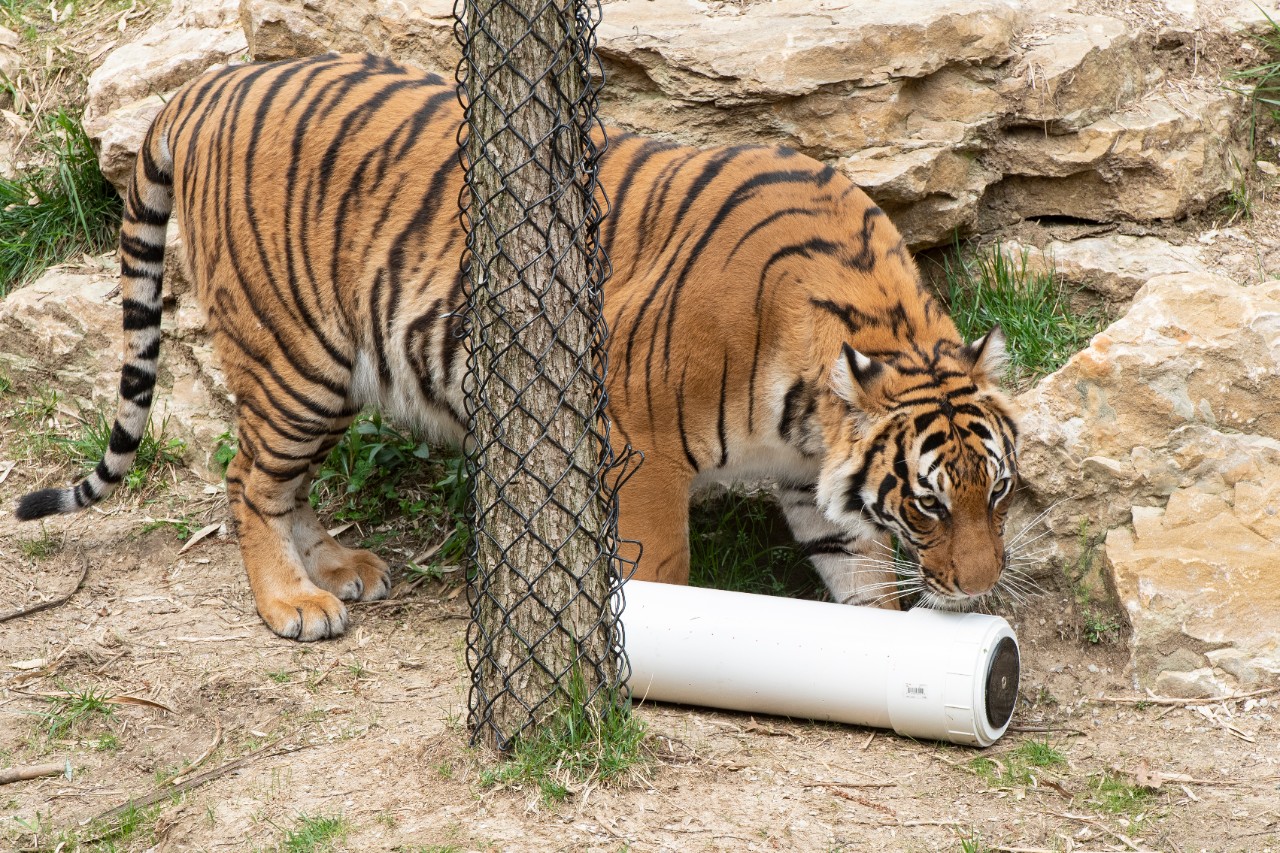
WVXU: How UC students are challenging zoo animals
WVXU profiled work by University of Cincinnati honors students to help provide enrichment for animals at the Cincinnati Zoo & Botanical Garden.
Students are working with UC Forward to come up with novel games and devices that stimulate curiosity and elicit natural behaviors in the animals.
For example, students made a game out of nested PVC pipes that reward rhinoceros hornbills with grapes when they pull strings to line them up correctly. Another device for tigers has built-in speakers and lights.
And students made a Plexiglas browse box for giraffes that requires them to use their dexterous tongues to move Wiffle Balls out of the way to reach a food reward.
Featured image at top: A Malayan tiger inspects an enrichment device playing music at the Cincinnati Zoo & Botanical Garden. Photo/Colleen Kelley/UC Creative Services

University of Cincinnati honors students show off the devices they made for the rhinoceros hornbills in the World of Birds at the Cincinnati Zoo & Botanical Garden. Photo/Joesph Fuqua II/UC Creative Services
Become a Bearcat
Apply online or get more information about undergraduate enrollment by calling 513-556-1100. Learn more about UC's many undergraduate and graduate programs.
Tags
Related Stories
Cincinnati Enquirer: Behind the ventilator, specialists provide breaths for COVID-19 patients
April 21, 2020
Suzanne Bennett, MD, associate professor in the UC College of Medicine and UC Health anesthesiologist and critical care physician, spoke to the Cincinnati Enquirer for a story about ventilators, their operators and their roles in the COVID-19 pandemic. She said the respiratory therapists can be the lifesavers for some COVID-19 patients.
